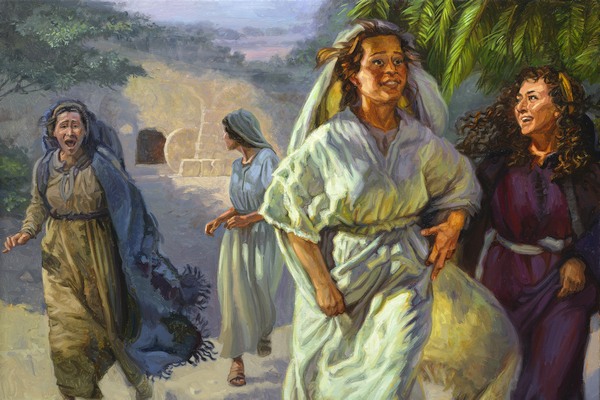Contemplating our path
14/04/2023

The astonishment of Easter
As Easter people, our celebration of Resurrection must have an impact on the attitudes and mindset which we bring to every aspect of our lives.
In these weeks following Easter, when we are still in the Easter Season, through the liturgy we are offered a wonderful feast of scriptural images. Amongst other scenes, we are invited to be shocked with Mary at the empty tomb, to be mystified with the disciples on their way to Emmaus, to be astonished with the disciples gathered in the Upper Room when Thomas encounters Jesus.
In each of these rich Gospels, we are drawn into a very human experience and encounter. And in each one we see a personal transformation take place as the character involved experiences an explosion of awareness --- Jesus, the one in whom they had placed their hopes, the one who they had watched die a humiliating death, was not dead at all, but rather alive with a new and different life. What a shock this must have been for each of them. Luke’s gospel tells us that those who were gathered in fear in the upper room were ‘dumbfounded’ (Lk 24:41); they were ‘lost for words’, unable to express their astonishment – were they brave enough to really believe that this was Jesus in front of them?

The women return from the grave, after Jesus’ resurrection, Jan van 't Hoff, copyright gospelimages.com
Do we allow ourselves to experience the astonishment of Easter? Year after year, we can become accustomed to the celebration and the rituals. And yet, the reality of Easter, the reality of resurrection, is, in fact, a shock!! If we truly allowed ourselves to enter into the mystery of Resurrection, our lives would never be the same. We would also experience the personal transformation that impacted the lives of those first disciples. Mary ran to the other disciples to tell them ‘she had seen the Lord’; those who had finally met Jesus at the meal table in Emmaus, with their ‘hearts burning within them’, returned to share the news with their companions in Jerusalem.
Each year, we have the opportunity to ask ourselves again: What does Easter mean to me, in my daily living? What does Resurrection mean for the way I relate with my sisters in community, or with those with whom I minister? How does the reality of Resurrection affect the ways in which I respond to the needs around me, both in my neighbourhood, in society, and in the world? If I really believe in the resurrection, how does this affect my response to the suffering and struggle in our world, to the fragility of all forms of life?
Sr. Susan Flood osu, Prioress General
